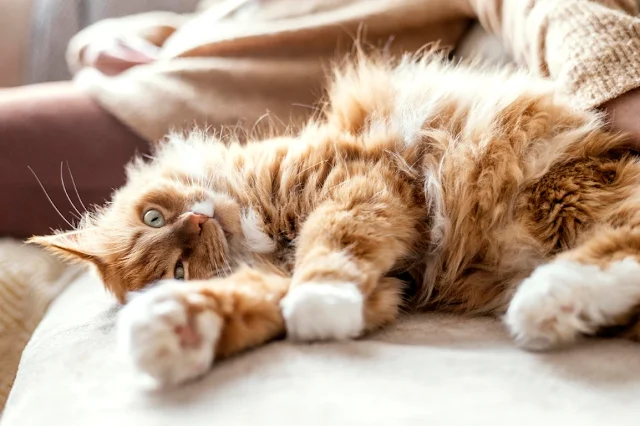10 Low-Cost Solutions for Natural Cat Flea Treatment
FREEASKDOCTOR.COM – Natural Cat Flea Treatment – Having a furry friend means creating an environment where they can thrive in health and happiness. One common challenge that cat owners face is the dreaded flea infestation. This article will introduce 10 natural and cost-effective remedies to combat fleas on your feline companion.
1. Regular Grooming
Routine grooming is an effective way to keep fleas at bay. You can easily spot and remove fleas while combing through your cat’s fur.
- Brush your cat daily with a fine-toothed comb
- Pay special attention to the neck and tail areas, as fleas often hide there
- Immediately wash the comb in soapy water to kill any captured fleas
2. Flea Repelling Plants
Certain plants emit odors that are unattractive to fleas.
- Catnip, lavender, and lemongrass can naturally repel fleas
- Keep these plants around your house or in your garden
- Note: Always ensure plants are safe for cats before introducing them to your home
3. Diatomaceous Earth (Food Grade)
Diatomaceous earth (DE) is a powder made from fossilized aquatic organisms. It’s non-toxic to pets and humans but lethal to fleas.
- Sprinkle DE on your cat’s bedding or areas where they frequently lounge
- Also, lightly dust your cat’s fur with DE, avoiding their face and ears
“DE is an all-natural product. It works by penetrating the exoskeleton of the flea, which causes them to dehydrate and die.” – Dr. Jane Smith, Veterinarian
4. Apple Cider Vinegar
Apple cider vinegar (ACV) is a popular home remedy.
- Dilute ACV with equal parts water, then apply to the cat’s fur using a spray bottle
- This solution can also be added to their drinking water
5. Herbal Flea Spray
An herbal spray can be a safe and natural flea deterrent.
- Combine one part vinegar, one part water, and a few drops of essential oils like lavender, peppermint, or cedarwood
- Spray lightly on your cat’s fur, avoiding their eyes and ears
6. Baking Soda and Salt
These common kitchen ingredients can help in the flea battle.
- Sprinkle a mixture of baking soda and salt on your carpets, furniture, and cat’s bedding
- Leave it for a few hours before vacuuming up
7. Homemade Flea Collars
DIY flea collars offer a natural, cost-effective solution.
- Dip a regular collar in a mixture of water and a few drops of flea-repelling essential oils
- Allow the collar to dry before putting it back on your cat
8. Lemon Spray
Citrus is a natural flea deterrent.
- Boil a cut-up lemon in water, let it steep overnight, then spray the solution on your cat’s fur
- Avoid the eyes, ears, and nose
9. Rosemary Flea Dip
Rosemary can be used to make a natural flea dip.
- Boil a couple of cups of fresh rosemary in water, strain the liquid, and let it cool
- Pour the solution over your cat, letting them dry naturally
10. Neem Oil
Neem oil is a powerful natural insecticide.
- Add a few drops of neem oil to pet shampoo for a flea-fighting bath
- You can also dilute it with water and spray it on your cat’s bedding
Remember that natural remedies may take more time to work than commercial products. It’s essential to maintain regular treatments and be patient. Always consult your vet before starting any new treatment regimen, especially if your cat has a medical condition or is pregnant, nursing, old, or very young.
Fleas are a common problem for cat owners, but there are many natural, low-cost solutions for effective flea treatment. From regular grooming to using flea-repelling plants and homemade treatments, these methods can help keep your furry friend flea-free. Remember, each cat is unique, and what works for one might not work for another. Always consult with a vet before trying new treatments to ensure they are safe for your particular pet.
With persistence and patience, your feline companion can enjoy a comfortable, flea-free life. The result is worth the effort: a happier, healthier pet and a cleaner, flea-free home.
“Prevention is always better than cure. Regularly monitor your pet’s behavior for any changes that could indicate a flea problem. Early detection and treatment can make all the difference.” – Dr. Jane Smith, Veterinarian
Remember, the battle against fleas is ongoing, but with these natural and low-cost solutions, victory is within your reach.




